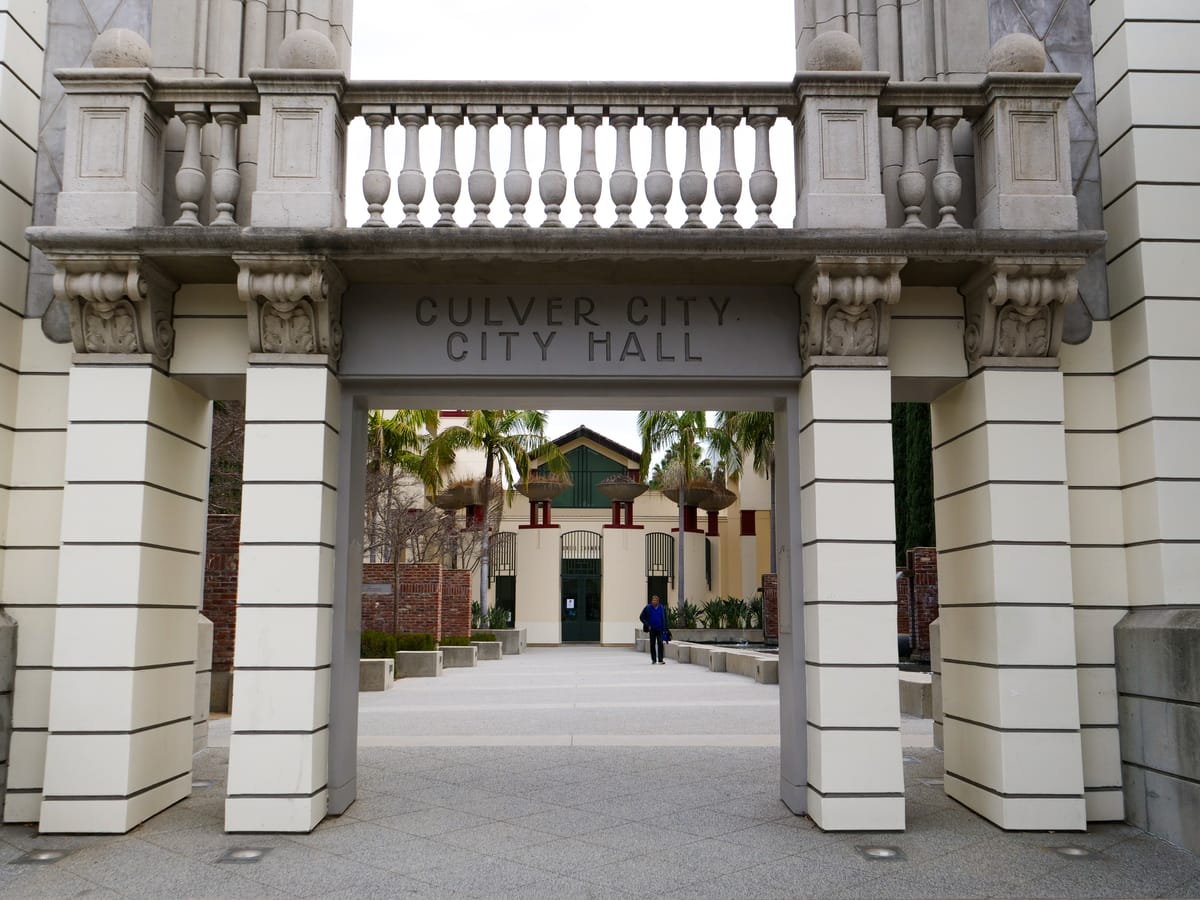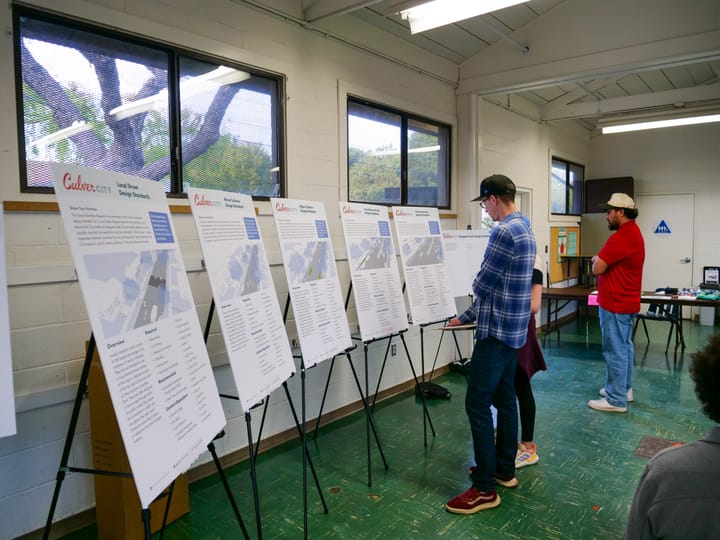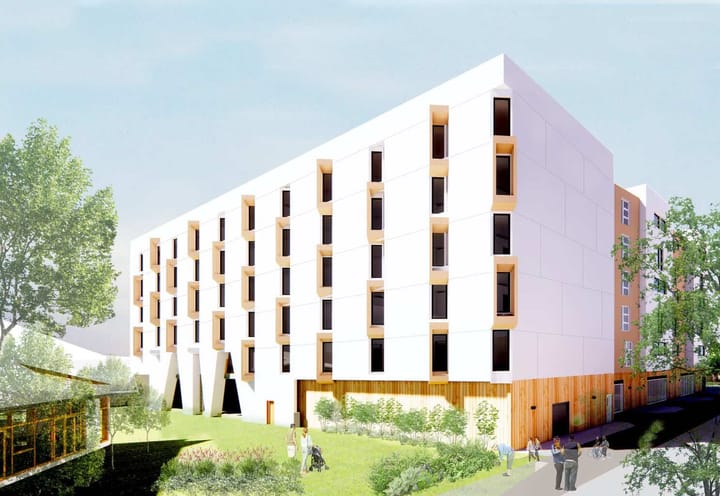Why a tax increase in Culver City may be inevitable
Whether it comes from the city, Los Angeles County, or L.A. Metro, a 0.25% sales tax increase could be imminent.

Facing a looming budget deficit and a potential reserve fund crisis, Culver City's city council directed staff to explore placing a 0.25% sales tax increase measure on an upcoming ballot at Monday night's City Council Meeting.
The direction also included preparing to declare a fiscal emergency in the city stemming from its structural deficit. A Declaration would allow the city to place the measure on an off-cycle election ballot, which could happen as early as August 26.
An opportunity to increase the sales tax by 0.25% will begin on April 1, when a special Measure A tax replaces Los Angeles County's Measure H. This means the sales tax increment occupied by Measure H will be available for local agencies to try to capture.
Some business owners expressed concerns that this would impact their sales and cause some customers to seek lower tax rates in neighboring cities.
However, Deputy City Attorney Michael Cobden explained the unfortunate reality: L.A. County and Metro's budgets are also struggling, and there is a strong possibility they will try to take advantage of the vacant increment by looking to implement their own sales tax increase.
"From the perspective of people buying goods in Culver City, they will pay that sales tax no matter what," Cobden said. "The real question is whether that revenue stays in the city or not."
How Does Sales Tax Work?
State law has limited the sales tax that local jurisdictions can impose to 2%, and the expiration of Los Angeles County's Measure H homelessness sales tax on April 1 leaves a 0.25% gap in Culver City's local sales tax ceiling.
After the passage of Proposition 218 in 1996, most tax increases must be approved by voters. If an L.A. County or L.A. Metro measure and a Culver City measure were to pass on the same ballot, the other motion would supersede the city's because the voter count for that motion would be higher.
However, if Culver City were to pass its own sales tax increase before the county, a potential county-wide general tax increase in 2026 and beyond would not apply to Culver City because the total local sales tax would already be at its ceiling under California law, just as Measure H did not apply to cities like Santa Monica.
Most of the sales tax paid in Culver City does not stay within its borders. California imposes a 7.25% sales tax, which makes up most of the 10.25% consumers currently pay in Culver City.
Within that 7.25%, 1% is funneled directly into the city through the Bradley-Burns Uniform Local Sales and Use Tax Law, with the remaining 6.25% allocated in various ways to the state. According to the California Department of Tax and Fee Administration, Culver City received just over $5 million in 2024 Q4 from this source.
The next largest portion goes to the county, with a 2.25% sales tax imposed by Los Angeles County. Unlike the state allocation, sales tax collected by the county is not redirected to cities unless there is a separate agreement in place.
L.A. County's sales tax is comprised of a series of smaller, voter-approved taxes that are as follows:
- 1980 Proposition A: 0.50%
- 1990 Proposition C: 0.50%
- 2008 Measure R: 0.50%
- 2016 Meaure M: 0.50%
- 2017 Measure H: 0.25%
Los Angeles County has been allowed to exceed the 2% cap because Measures R and M are considered "special taxes" enabled by particular legislation. These special taxes are generally introduced in bills with language exempting them from the standard local tax limit or with other legislation that designates taxes for a specific purpose as exempt.
For example, California's State Senate passed SB 767 in 2015, which allowed for a 0.5% sales tax on "specified transportation-related projects and programs" to be instituted even if the 2% limit was exceeded. This bill made Measure M a special tax not limited by the local cap.
A more recent example is the introduction of 2023's California Assembly Bill 1679, which allows for a tax of up to 0.5% for housing and homelessness services to ignore the 2% ceiling. This bill enables Measure A to remain feasible despite the county's 2.5% sales tax rate when implemented.
Culver City has two sales tax revenues, neither of which are special taxes. Measure Y was passed in 2012, implementing a Culver City-specific 0.50% sales tax, and Measure CC extended that tax to 2033. Measure C was passed in 2008, enforcing a 0.25% sales tax with no sunset date.
Combined with the 1.0% general tax rate after Measure H expires in Los Angeles County, the local sales tax rate charged in Culver City will be 1.75% come April 1. This gives room for an additional 0.25% increase, bringing the total sales tax to its current allowed ceiling of 10.75%.
With an expected annual revenue of $5.6 million from the increase, financial projections related to the Jubilo Village project loan show that even with the loan being given for the project, the city's deficit would turn into a surplus in Fiscal Year 27-28.
Without it, the city's projected deficit would necessitate a cut in expenditures, which would result in cutbacks and reductions in city services and personnel.
What Happens Now?
According to city manager John Nachbar, the city can quickly mobilize its polling contractor to gauge voter opinion. If a measure is deemed unlikely to pass by the polling, the council can decline to move forward with it, but Nachbar says that no tax measure has failed to pass in Culver City in the past two decades.
City staff outlined four potential election dates, but under California Constitution Article XIII C, section 2 (b), any general tax increase could only be placed on the ballot of a "regularly scheduled general municipal election for the City Council" without declaring a Fiscal Emergency.
Three options were deemed feasible for this election before the next General Election on November 3, 2026. Option one is an All-Mail Ballot Election on Tuesday, August 26. California Elections Code § 1500 allows all-mail, off-cycle elections to be held on one of two dates. One of these is the last Tuesday in August of each year, which this year is August 26.
The second option is to contract L.A. County's services to conduct a special election for the city on November 4. The city would be responsible for the full cost, estimated to be $1.3 million. This option would be much more costly than the all-mail election, which city staff estimated to cost $500,000.
Culver City could also wait for the 2026 Primary Election on June 2, 2026. Since this is a standard election, voters can be flexible in how they vote, and the city's costs to hold it are estimated at $200,000, the same as what having the measure in the 2026 General Election would cost.
"Considering the City's current fiscal climate, the election calendar, costs, and the potential for a competing measure," the March 17 staff report reads, "staff recommends that the City Council declare a fiscal emergency and [hold an all-mail election on August 26]."




Comments ()